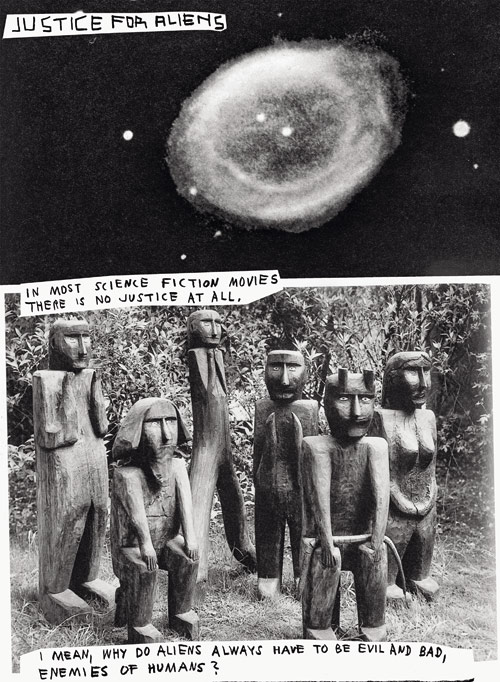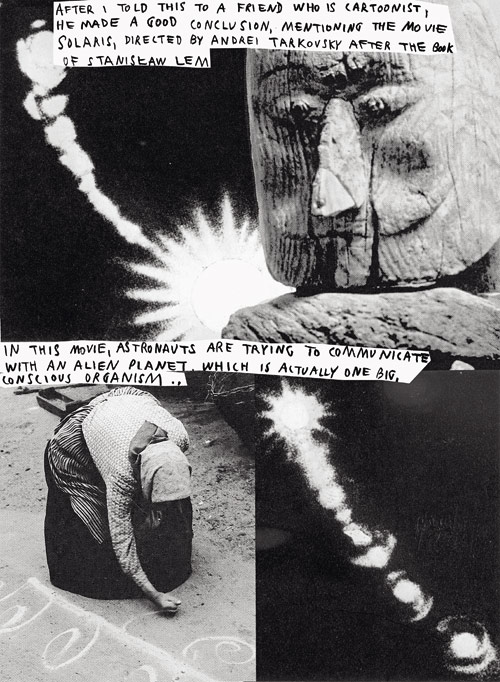2011-2014
Agnieszka Piksa
Pairing imagery sourced from a publication on Polish folk art with illustrations from a 1970s popular science book on the origins of the universe, the collage Justice for Aliens – one of the many that will be published as part of a small fanzine freely distributed during the 31st Bienal – suggests that modern scientific imagination may not be so distant from that of ancient animist rituals.

After all, both ceremonial icons and diagrams about faraway galaxies can be seen as attempts to represent the unknown, fuzzy black-and-white astronomical images offering no less obscure clues than tribal patterns drawn on the pavement. Underpinning this parody of science fiction comics, however, is the sombre realisation that whereas pre-modern cultures regarded otherness with awe, the vilification of aliens in popular science fiction both reflects and fuels the angst that modern societies systematically project onto the colonial, ethnic or sexual other – a fear often used to justify their subjugation. Claiming ‘justice for aliens’ may indeed not be such an absurd demand when far less strange aliens are unlikely to be greeted ‘with flowers and a glass of wine’, as one of the captions begs, at today’s heavily policed borders.
Justice for Aliens is an episode from the graphic novel Gvozden (Serbian for ‘Ironman’, 2013), the result of a two-year collaboration between Polish artist Agnieszka Piksa and Serbian scriptwriter Vladimir Palibrk. In spite of the hyperbolic undertones of his name, Gvozden is presented as an anti-heroic ‘everyman’ whose enemies are not evil superheroes but equally corrupt forms of representation: from advertising to corporate language and from sexual stereotypes to violence in film.

At times expressionistic, at others quasi-abstract, Piksa’s mostly black-and-white drawings refuse to abide by the rules of style. Like her collages and conceptual word-diagrams, they are experiments in the visual analysis of language, which seek to give a graphic form to the associations, contradictions and assumptions implicit in seemingly innocuous everyday communication. – HV




